Do you ever downplay the value of your offering because you’re afraid prospects or customers won’t find the estimated ROI believable?
I’ve had many discussions with B2B salespeople who say they tone down value as soon as ROI calculations start to become “too high.” For example, let’s say a salesperson’s solution costs $1,000, and their ROI calculations show that the prospect will receive $100,000 worth of value. Feeling that the resulting 9,900% ROI is unbelievable, the salesperson will say, “We don’t really deliver $100,000 of value. We actually deliver $10,000 of value.” The salesperson believes that a 900% ROI sounds more believable to the prospect.
To me, that’s ridiculous. If you charge $1,000 for an offering that delivers $100,000 of value, yes, the ROI is certainly huge… but that doesn’t mean the ROI is wrong or unbelievable.
There is no such thing as “too high” of an ROI. If you’re delivering very high value for very little price, there are one or more factors at play.
- Your solution is underpriced (and you should be charging more).
- Pressure from competitors keeps you from charging more.
- Competing alternatives (other than direct competitors) keep your price down.
For example, in our business of selling ROI tools, we often promise a very, very high ROI. But one of the limiting factors in setting our price is that prospects believe that they can always build a spreadsheet of their own. In other words, a homegrown spreadsheet is usually their next-best alternative to investing in a professional ROI tool. Of course, we know their homegrown solutions won’t be as good, but that’s typically something our price will be compared against. So even though the ROI on our offering is extremely high, we can’t set our price based on ROI alone, because that likely will drive customers to pursue cheaper alternatives.
If you’re truly worried about the believability of your ROI, remember that ROI is simply a calculated number, which means that you can and should show your math to the customer. Walk the customer through the numbers, step by step, using a good ROI tool. At each step, you can ask the customer, “Does this look realistic? Is this value real and do you believe that it can be achieved?” That way, the customer can see exactly how you arrived at such a seemingly “unbelievable” number. Bear in mind that this is the customer’s business case — not yours. You’ll be more persuasive if use the customer’s own numbers (not generic numbers or examples). Also, make sure customers believe in their own numbers; that way, they’ll also believe in the value you’re estimating.
Remember, too, that your ultimate decision maker is very likely the CFO (or another individual with fiscal responsibilities). If you downplay the value of your offering to make it seem “believable” to one stakeholder, you still might get shot down when your proposal reaches the CFO’s desk, because he or she will be looking at the larger picture. Specifically, the CFO will be comparing the business case (including ROI, net-present value, and payback period) to that of other projects and making a decision on which projects to fund. If there are other projects with stronger business cases, your project may not get funding approval.
If you believe in the value of your solution, you should be selling that all day long. Don’t discount based on what you think the customer’s reaction will be. Don’t even discount if the customer comes back to you and actually says, “That’s too high of an ROI.” Do the analysis with the customer and then let the customer tell you whether or not the value is realistic.

Resources
Connect with Darrin Fleming on LinkedIn.
Join the Value Selling for B2B Marketing and Sales Leaders LinkedIn Group.
Visit the ROI Selling Resource Center.














